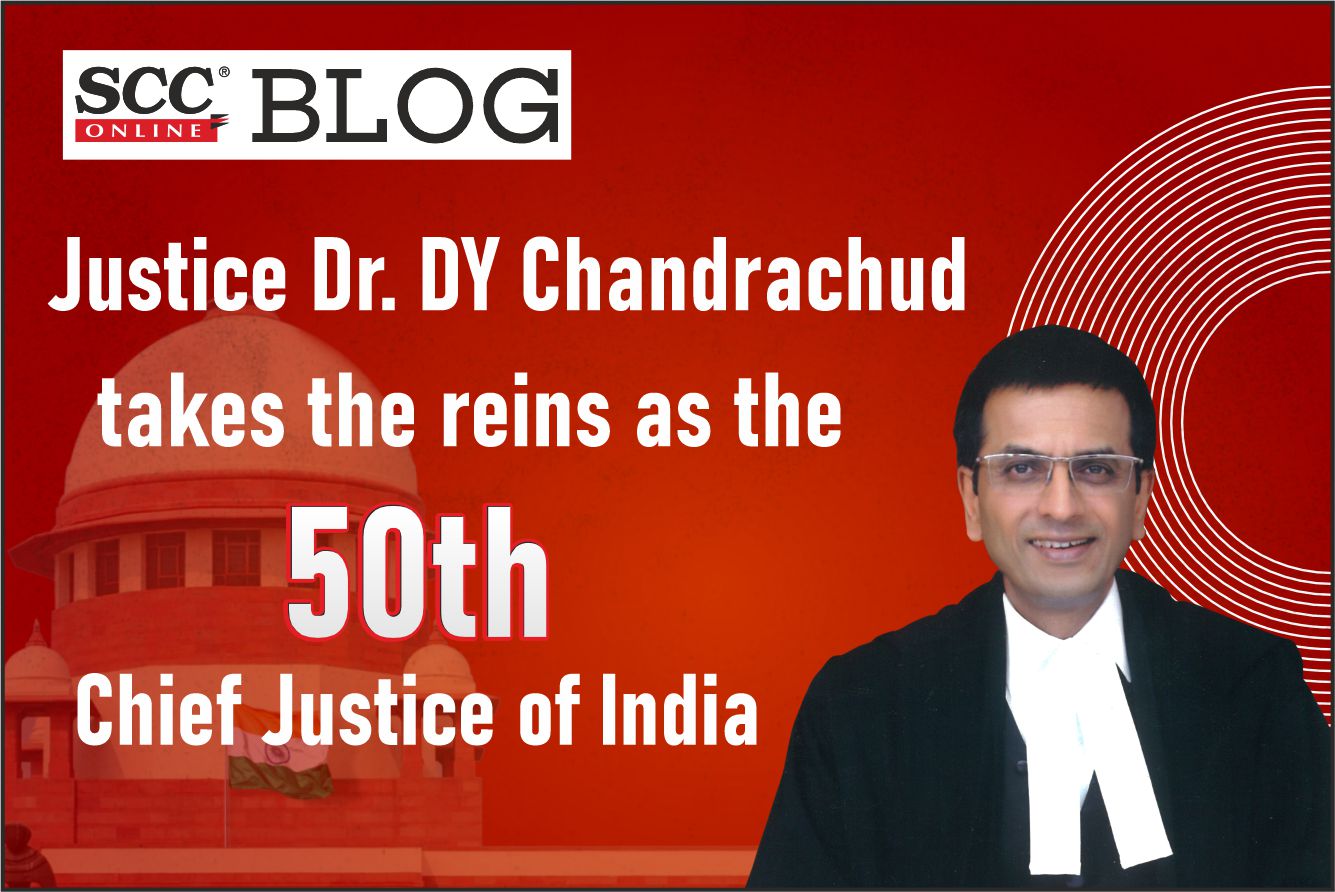

Over the years, the Indian Supreme Court has faced criticism for its increasing compliance with the government's actions, leading to perceptions of it as an illiberal institution. As the Chief Justice, Chandrachud, who was once praised for his progressive and liberal values, has not lived up to the expectations of being assertive and independent. The court's handling of politically sensitive cases, such as Article 370, the Babri Masjid dispute, and bail, has tarnished Chandrachud's previous reputation and overshadowed his earlier standing as a liberal judge. Additionally, a shocking revelation from Justice Chandrachud himself has raised concerns about the court's impartiality in the controversial Ayodhya dispute.
In recent years, the Indian Supreme Court has faced criticism for its perceived compliance with the government's actions, leading to concerns about its independence and impartiality. This issue has come to the forefront under the leadership of Chief Justice DY Chandrachud, who was once praised for his progressive and liberal values.
Chief Justice Chandrachud was appointed to the Supreme Court in 2016 and became its Chief Justice in November 2022. Prior to his appointment, he served as a judge in the Bombay High Court and the Supreme Court. He was known for his liberal rulings on issues such as LGBTQ+ rights and constitutional freedoms.
Critics have accused the Supreme Court under Chief Justice Chandrachud of being overly compliant with the government, particularly in politically sensitive cases. For example, the court's handling of the following issues has drawn criticism:
In addition to allegations of compliance, the revelation by Chief Justice Chandrachud that he had met with a Bharatiya Janata Party (BJP) official in the wake of the Ayodhya dispute has raised concerns about the court's impartiality. Justice Chandrachud claimed that the meeting was a coincidence, but critics have questioned whether it compromised the court's neutrality in the case.
The alleged compliance and impartiality concerns have tarnished Chief Justice Chandrachud's previous reputation as a liberal judge. Critics claim that he has not lived up to expectations of being assertive and independent.
1. Why is there criticism of the Supreme Court under Chief Justice Chandrachud? Answer: The Supreme Court is criticized for its perceived compliance with the government's actions in politically sensitive cases.
2. What are some examples of cases where the Supreme Court's handling has been questioned? Answer: Examples include the Article 370 revocation, the Babri Masjid dispute, and the granting of bail to political figures.
3. What is the concern about Chief Justice Chandrachud's meeting with a BJP official? Answer: Critics question whether the meeting compromised the court's impartiality in the Ayodhya dispute.
4. How has Chief Justice Chandrachud's reputation been affected by these allegations? Answer: His reputation as a liberal judge has been tarnished, and he is seen as not being assertive or independent enough.
5. What is the future outlook for the Supreme Court's independence? Answer: The Supreme Court's independence is being tested, and it remains to be seen whether it can maintain its neutrality and safeguard constitutional rights in the face of government pressure.

During his victory speech, newly elected mayor Zohran Mamdani called out US President Donald Trump's immigration policies and vowed to protect the city of immigrants. Mamdani also promised to combat corruption and stand up for the marginalized communities, while indirectly challenging Trump to turn up the volume and listen to the will of the people.

Zohran Mamdani, son of filmmaker Mira Nair, made history by becoming the first Democratic Party progressive to be elected as mayor of New York City. He left social media abuzz with his emotional speech that ended with YRF's iconic Dhoom tune, marking not only a new beginning for the city but also a nod to his Indian roots. But as he takes on his new role, Mamdani faces the daunting task of delivering on his ambitious campaign promises, which have been deemed unrealistic by critics. Nonetheless, his victory brings hope and a message of empowerment for the citizens of New York.

In a landmark victory for diversity and representation, Zohran Mamdani has become the first Muslim mayor of New York City. The 34-year-old Democratic Party candidate's win has been attributed to his intense focus on affordability and his mastery of social media, which helped galvanize record turnout among young voters and immigrant groups. As the newly elected mayor, Mamdani inherits a city with a budget of over $120 billion and a GDP of $1.3 trillion, along with tremendous powers and responsibilities, including managing relationships with federal, state and local governing bodies.

As the Bihar Assembly elections approach, PM Modi raises the stakes with his public rally in Arrah criticizing the Mahagathbandhan manifesto for its false promises. He asserts that the NDA's honest declaration will bring industrial development and job opportunities for the youth in Bihar. PM Modi is confident that the NDA will achieve victory with a record margin, while the leaders of the Mahagathbandhan will face a crushing defeat.

Congress MP Rahul Gandhi will address the media in New Delhi today, with speculations that he will reveal more details about alleged irregularities in voter lists. This comes after his previous claim of a "hydrogen bomb" being related to his accusations of "vote theft." Gandhi had earlier alleged a centralised software was used to delete names from voter lists in multiple states. The press conference is scheduled for 12 pm at the AICC headquarters.

Zohran Mamdani has won the New York City mayoral election, becoming the city's first Muslim mayor. In his victory speech, Mamdani promises to bring light to the city and outlines his plans, including taxing millionaires to fund social programs. Meanwhile, Democrats have also swept governor races in Virginia and New Jersey in a significant victory for the party. These elections are seen as a rebuke to President Trump, who had threatened to cut federal funding to NYC if Mamdani won.

Union Minister Amit Shah addressed the inauguration of the expanded capacity of Dr Vitthalrao Vikhe Patil Cooperative Sugar Factory in Maharashtra's Ahilyanagar. He thanked the MLAs of the National Democratic Alliance for donating one month's salary to the relief fund for the affected farmers. Shah also praised the Maharashtra government for their initiatives and highlighted the renaming of districts under the BJP-Sena government.

The Pasighat police in East Siang district, Arunachal Pradesh have arrested the 33-year-old boys' hostel warden of Sanggo English School for sexually assaulting minor students. This came to light when a student was hospitalized for urogenital complications. The incident has sparked outrage from parents and the public, demanding strict action against the accused warden. In response, the Arunachal Pradesh State Human Rights Commission (APSHRC) has taken suo motu cognisance and ordered for a detailed report on the investigation, victim protection, and school management.

Actress Siddiqa Begum, daughter and legal heir of Shah Bano, has served a legal notice on the makers of the upcoming Bollywood film 'Haq'. The notice states that the film's unauthorized depiction of the personal life of Shah Bano without the consent of her legal heirs is a violation of their rights. 'Haq' is based on the landmark 1985 Supreme Court case that granted maintenance to Shah Bano, a Muslim woman, from her divorced husband.

After four years, the 'Darbar Move' tradition in Jammu and Kashmir has been restored, fulfilling the promise of the government and bringing a boost to the economy. National Conference chief Farooq Abdullah expressed happiness, noting that those who sought to separate Jammu and Srinagar have failed. Chief Minister Omar Abdullah received a warm reception and inspected the secretariat premises after the ceremony, as security in the region was heightened for the occasion.